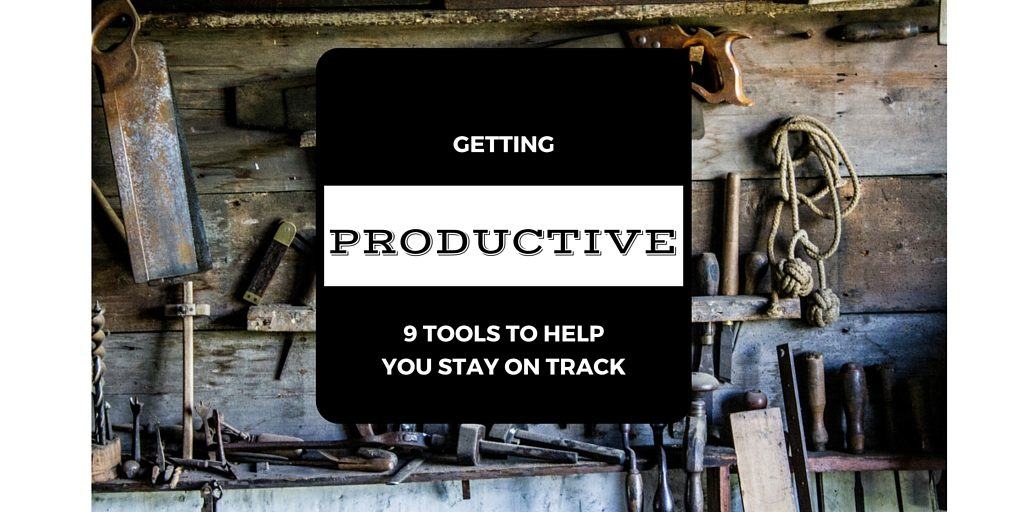 One of the things I know about myself is that I am just not a naturally organized person. In fact, my lack of being organized gets me in trouble sometimes and causes me to be overwhelmed. So a few years ago, I finally got to a place where I knew I needed to change my habits. Since that time, I have learned a lot about how to get productive and use several tools available to me to create new habits. So in this article I am going to share some tips and ways to stay on track and the productivity apps I like to use to keep my counseling practice running smoothly.
One of the things I know about myself is that I am just not a naturally organized person. In fact, my lack of being organized gets me in trouble sometimes and causes me to be overwhelmed. So a few years ago, I finally got to a place where I knew I needed to change my habits. Since that time, I have learned a lot about how to get productive and use several tools available to me to create new habits. So in this article I am going to share some tips and ways to stay on track and the productivity apps I like to use to keep my counseling practice running smoothly.
First of all, I would recommend these books that helped me immensely in getting myself better organized and on track. These are: “Getting Things Done” by David Allen also “Getting Things Done” by David Allen
. Of course there are numerous other productivity systems and resources out there, but I found these two books practical and focused in helping me realign my priorities and learn new habits. Here are the tips and hacks I have learned so far:
Schedule everything!
Chris Ducker who has the podcast, “Youpreneur” said, “if it isn’t scheduled, it won’t get done.” That is so true for me! In fact, schedule all of your regular tasks. I find that when I live by my calendar, my life is much less stressful and I am able to stay on track. Obviously we know to schedule appointments and meetings. So it just makes sense to schedule everything else that needs to get done. I know, for example, if I don’t schedule time to work on documentation and write session and progress notes, I tend to procrastinate and get behind. So put daily tasks on your calendar just like you would any other appointment or meeting.
Schedule time to schedule!
Schedule and plan your day and week. I spend at least 15 minutes each morning planning out my day. I create a to-do list that outlines the “must do” which means for me do first. I also create a “do next” list. Over time I have gotten better at knowing how to prioritize. Making to-do lists and prioritizing daily tasks goes a long way at helping you stay focused.
Do the less fun stuff at higher energy times
One tip I recommend is to work on the less fun stuff when your energy level is the highest. If I have a mundane task I need to complete, like filing or documentation, I always do that in the morning when my energy level is at its highest. That way things goes quicker and I can usually knock them out in just a few minutes. Although not mundane, I would say the same for any creative tasks like blogging and writing. Do those when your energy level is at its highest.
The primary thing to do in staying organized is to develop systems for processing information and everything else as they come in, especially emails. David Allen talks about having “capture tools” to be able to have a funnel for everything that comes in. I know for me, the primary inflow of things for me seems to come through emails. Again, David Allen says that as you capture stuff in your inbox, you have to decide what to do with it as it comes in. In his “Getting Things Done” (GTD) system you do one of four things with everything that comes in:
- You can complete then, (if it will take 2 minutes or less)
- Trash it
- Delegate it
- Defer it to a later time.
The goal of course is to have a zero inbox at the end of each day. The key to this though, as mentioned already, is to schedule time each day to process your inbox. Then leave it alone the rest of the day! In-coming emails, or any other incoming information, can get to be time killing distractions for your day if you don’t have a system for managing them.
As you begin the process of prioritizing, deferring, delegating or trashing things that come in, whether it be emails, phone calls, texts or other media, you will need to have the tools to help you process. Here are a few tools that I have found invaluable to staying organized and on track:
Evernote– If you are not familiar with it, Evernote is an application for making a note out of pretty much anything (text, pictures, videos, audio, websites, social media, etc.). You then have the ability to organize notes into notebooks along with creating tags. So for example, if I get an email I need to save for a project I am working on, I simply save it to that project notebook in Evernote and tag it. Since Evernote is cloud based it is accessible across all my devices. It is a very powerful tool. It will save attachments to emails for referencing later. I use it too to save web pages and blog articles that I want to read later. I can easily search Evernote and find it from any device.
IQTELL- This the application I absolutely live by. It is where all of my email is funneled and processed from. I had been using Outlook, but when I discovered IQTELL, it totally changed the way I was able to process and send emails. The IQTELL developers created this application with David Allen’s GTD system in mind. With just a few clicks, I can send emails to Evernote, or create projects, actions or to-do items. It is also connected to my Google calendar so I can add tasks and meetings right from this one application. It makes deferring, delegating, completing and trashing simple.
Dropbox- In terms of managing files and data, I use Dropbox. The thing that is great about Dropbox is that you can share file with anyone along with having access to your files from anywhere. It is cloud based. It is also free up to a certain amount. It has been worth it for me though to get the premium subscription which gives me 100GB of storage.
Google Drive– Like Dropbox, Google drive is a great tool for storing and sharing files. The downside for me though, is that things get stored in Google’s formats, which can be easily converted, but requires a few extra steps. Nonetheless, it is a powerful tool for file storing and sharing.
Trello – Another tool I am just starting to use and get familiar with is Trello. Trello is an app that is really suited for collaborating with others and working on group projects. Trello can be of course used individually to categorize projects and to-do lists. Again it is cloud based and can be synced across devices.
Social Media – One of the other areas of my life that can be a time burner, but also an incredible marketing tool for private practice, is social media. It is important to keep your content flowing and social media is one of the best ways to do that. As I have mentioned before, schedule everything. So I think it is wise to schedule your social media time and use only the scheduled time so that Twitter and Facebook burn other parts of the day away. Nonetheless, you still need to keep the content coming. Currently, I am using Facebook(https://www.facebook.com/kingsportcounselingpllc/), Twitter(@counselingkpt) and Pinterest(kptcounseling) for my private practice. For my consulting, I use Twitter(@therapistlearn), LinkedIn(https://www.linkedin.com/in/kingsportcounseling) and a little bit of Pinterest.
Buffer- So another tool that I use to keep my social medial content flowing is an application called Buffer. It is easy to use and I can schedule my Tweets and LinkedIn posts in advance. You set a pre-determined schedule for Buffer to post your Tweets or other content automatically. It keeps the content flowing without me spending all of my time on social media to do that. All I have to do is add content to the que for Buffer to publish at a predetermined date and time. There are other similar applications like Hootsuite and Edgar that come highly recommended. I am using Buffer because of its simplicity to use.
IFTTT– Another app that is so cool, that has so much potential, is IFTTT (If this then that). Again it is an application I am just getting familiar with. IFTTT allows you to link applications together to preform automated tasks. So for example, if I find an article or Tweet that I want to add to my Buffer que so that it is published at a certain time during the day based on the pre-determined schedule I have in Buffer. IFTTT uses “recipes” to complete automated tasks.
Human Factors- And finally, probably the most important “tool” for me, is my virtual assistant, Jennifer. Jennifer handles all of my intake phone calls and scheduling. Having contracted with her to handle this whole side of my private practice has allowed me to be so much more productive with my time. Michael Hyatt’s book “The Virtual Assistant Solution” is a great resource to give you more details and ideas about how to use virtual assistants to delegate to and make your work flow much more efficient.
I also need to give a shout out to another “virtual” assistant I use and that is Barbara who handles all of my medical billing and claims processing through the practice management system I use, TherapyAppointment.com. It is yet another automated tool that is cloud based and HIPAA compliant for handling client records, treatment plans and progress notes. I use it along with the Word template I developed, Session Note Helper™.
There are probably thousands of apps and tools out there ready to be used. As a matter fact one of the oldest and best productivity tools I know of is very low-tech and tried and true. That is simply the spiral bound notebook or composition book. Even though I make use of the tech stuff all the time, simple pen and paper sometimes just works best.
The important thing is to find the ones that work for you and create the habit of using them consistently. And that is the key! Make whatever you use for your productivity tools a habit. We are all creatures of habit. It is a matter of cultivating the ones that keep us on track for being awesomely productive!
 By L. Gordon Brewer, Jr., MEd. LMFT – Gordon is the President and Founder of Kingsport Counseling Associates, PLLC. He is also a consultant and business mentor at The Practice of Therapy.
By L. Gordon Brewer, Jr., MEd. LMFT – Gordon is the President and Founder of Kingsport Counseling Associates, PLLC. He is also a consultant and business mentor at The Practice of Therapy.
Suggested Reading:



